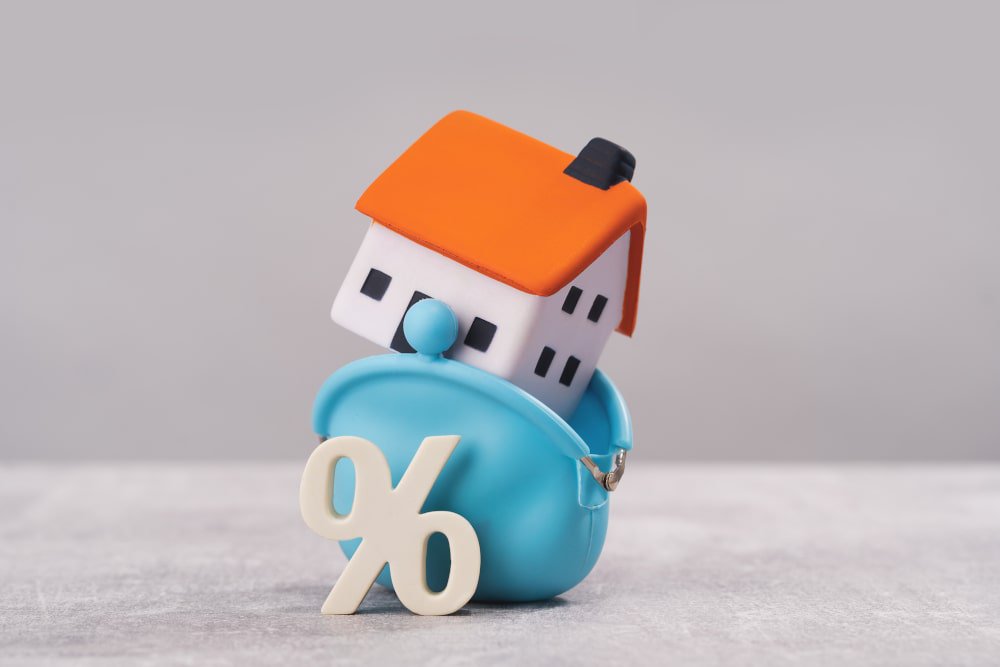Everything You Need to Know About Property Tax in Toronto and the GTA

Most people are aware that they need to make mortgage payments every month , but many do not know exactly what is associated with the ongoing cost of homeownership. On top of your principal repayment and interest fees, one additional item you should be aware of is your monthly property tax payment. In this guide, we explore exactly how property tax is calculated and applied, and how you can alter your payments to maximize savings.
How is Property Tax Calculated?
The amount of property taxes you are required to pay can be calculated by multiplying the assessed value of your property by your municipal property tax rate. The property tax rate will vary from municipality to municipality, but typically fall within the range of 0.5% to 2.5%. For instance, on a $2 million property, you may pay a 0.5% annual tax of $10,000.
Your province will also dictate how your property tax is calculated based on the government allocations of those funds. In Ontario, your property tax goes towards funding municipal education (elementary and secondary schools), libraries, police forces, and firefighters. As a result, your annual property tax will be impacted by the provincial education tax rate. In Toronto, you will also have an additional basis point or two (a basis point = 0.01%) added to your property tax rate in support of the City Building Fund.
Your property tax rate can also be impacted by the type of property you own. For instance, farmlands and forests have the lowest tax rates, residential tax rates fall somewhere in the middle, and commercial and industrial tax rates are often higher.
How Can I Lower My Property Tax?
If you are looking to minimize your monthly housing expenses, you may be hoping to reduce your property tax payments. Luckily, there are a few strategies you can employ to reduce the property taxes you are currently subject to:
- Location, location, location! The most significant factor in determining your property taxes will be the municipality in which you live. Each province, region, and municipality will have their own laws and policies regarding property tax, and rates may vary accordingly. Before deciding on a property to buy, make sure to research the local taxation policies in advance of closing the deal.
- Consider Your Property Type. Different types of properties will be subject to different rates of taxation. For instance, in Toronto, residential homes are subject to a 0.61% property tax while multi-residential properties are subject to a 1.09% tax rate. Upon closer inspection, however, one may realize that new multi-residential properties are only taxed at 0.61%. In this case, purchasing a new unit vs. an old unit can significantly impact overall property tax costs.
- Re-Assess Your Property Value. Your property tax payments will vary based on the assessed market value of your property – as re-established every four years. If you feel that your payments are too high, or that the appraised value of your home is inaccurate, you can appeal your property tax assessment. For more information on how to complete this process, check out our Frequently Asked Questions (FAQ) section.
- Taking Advantage of Cash-Back Programs. Many financial institutions offer cash-back incentives for bill or tax payments. If you register your property tax recipient as a payee though your online banking services, you can often receive cash-back rewards every time you pay your property taxes – reducing your overall costs in the long run. Of course, each financial institution is different, and may offer different incentives.
Payment Options for Property Tax
When it comes to paying your property taxes, there are a few options available to you.
The first option is to include property taxes in your mortgage, allowing you to automatically account for them in your monthly payments. This option may not be available with every mortgage lender, so it is important that you ask your mortgage broker or lender about this if it is something that interests you.
Paying your taxes through your mortgage limits the risk that you might forget to make your payments. If you fail to pay your property taxes, the municipal government may be able to place a lien on your property which would take priority over your mortgage debt. For this reason, many lenders require first-time buyers who make a small down payment (<20%) to select this method of property tax payment.
Under this method, your lender (often a financial institution) will hold your money in a separate escrow account and use it to make your tax payments for you. While this may seem convenient, it is important to remember that these funds can only be debited from your account and some lenders charge a small monthly or annual fee for this service.
Another option is to pay your property taxes yourself. You can go about this in a number of different ways depending on your preference. The simplest option is to hold your money in a separate account and pay your annual property taxes as a lump sum at the beginning of each year. However, this method can be expensive if you do not have the capacity for such a large annual payment. In that case, you may want to consider making monthly/quarterly payments. You can set up your property tax recipient as a payee through your financial institution and set up an automated bill payment.
Still unsure of what to do? Clover Mortgage can help. Our experienced team of brokers can assist you in weighing your options, and choosing the best path for you and your mortgage-related finances . Contact us today to schedule a free consultation!
Frequently Asked Questions
How Can I Appeal My Property Tax Assessment?
Your property tax will be highly dependent on the assessed value and classification of your property. In Ontario, the results of your assessment are conducted and provided every four years by the MPAC (municipal property assessment corporation). If you would like to appeal your property tax assessment, and you live in Ontario, you may file an RfR (Request for Reconsideration) with MPAC or appeal directly to the Assessment Review Board (ARB).
What are the Penalties for Late Payment of Property Tax?
The late payment of property taxes is often subject to late payment fees and additional interest surcharges. The exact fees will vary by city and region, but in Toronto, a late payment rate of 1.25% is applied to all outstanding balances and compounded at the start of each month—if still unpaid.
Can I refinance my mortgage if I am behind on my property taxes?
In many mortgage refinance situations where the borrowers have property tax arrears, the lenders will offer to pay your property taxes at the time of closing provided that there is enough equity in the property. For the most part, lenders will not refinance your mortgage or give you a 2nd mortgage on your home if your property taxes are overdue without paying them first.





